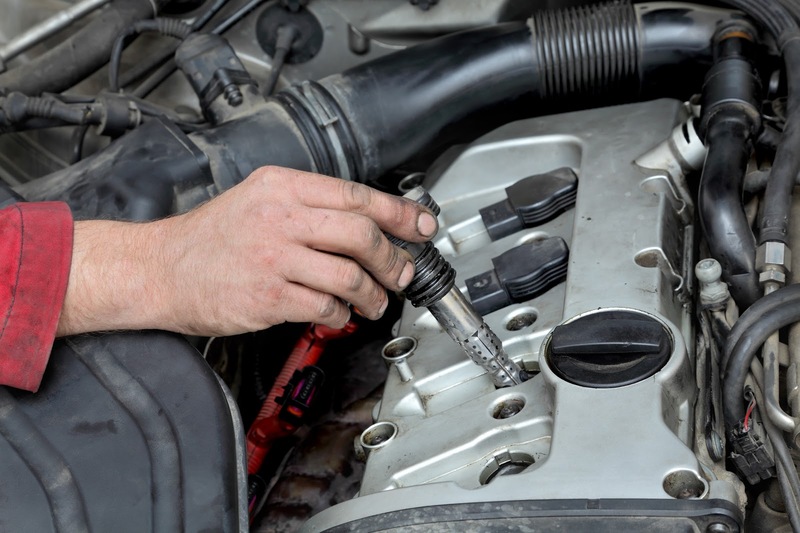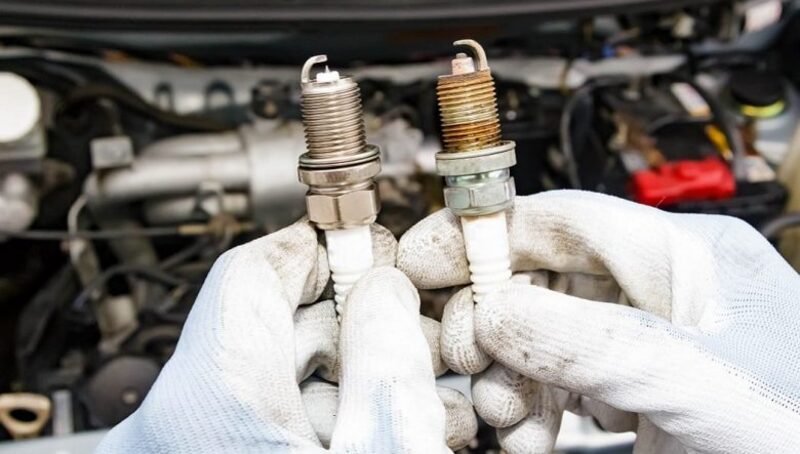Have you encountered some vehicle problems after changing spark plugs? Do you want to know why it was so?
Spark plugs in internal combustion engines might seem small but they are important. They do not last forever, hence requiring replacement occasionally.
There are many factors to consider when changing spark plugs. When the spark plugs are not replaced properly, your engine is bound to struggle after the replacement of the spark plugs.
This article will explain all you need to know about spark plug replacement, problems you can experience after changing spark plugs, solutions to these problems, and ways of preventing spark plug-related issues from arising in your engine.
Let’s get started!
What is the Function of a Spark Plug In a Car?
In an internal combustion engine powered by gasoline, the spark plug ensures adequate and timely combustion of the air-fuel mixture in the combustion chamber.
For combustion to occur in the combustion chamber, the spark plug uses an electrical current to create a spark in synchronization with the entry of the air-fuel mixture into the combustion chamber, causing an explosion that pushes the piston backward, thereby rotating the crankshaft.
For this reason, spark plugs are located in the cylinder head. The current that helps the spark plugs produce the spark that ignites the fuel is transferred to the spark plug by a wire attached to the other end.
Each combustion cycle in the IC engine produces carbon deposits that foul the spark plug over time. Therefore it is natural for the spark plugs to be replaced occasionally.
The spark plugs are Usually replaced once in 12 months or once in 18 months.
When replacing the spark plug, you must ensure the replacements fit the engine perfectly. Spark plugs come in different shapes and sizes. If the replacements are not a perfect fit for the engine, it will inevitably cause a problem.
To save yourself the stress of making a mistake when replacing your spark plugs, it is always advisable to employ the services of an expert.
What Are the Problems After Changing Spark Plugs?
There are many reasons why any car owner will want to replace your spark plugs. However, even after changing the spark plugs, there are still some problems you can experience that you normally believe the replacement of your spark plug should solve.
Some issues you might encounter after changing your spark.
Reduced Engine Performance
The overall performance of your engine will reduce at times after the replacement of spark plugs. Faulty spark plugs usually cause this drop in engine performance.
The drop in the performance of your engine will also affect the overall vehicle’s performance as shifting gears, accelerating, and steering will all experience reduced performance.
Noise From Your Engine
Hearing strange engine noises is another problem you might experience after changing your spark plugs—these unpleasant sounds like being in the form of knocking, rattling, or buzzing noises.
The cause of these noises is multiple misfiring spark plugs, leading to combustion problems. Another cause of this noise is a faulty piston which will lead to leakage.

Car May be Difficult to Start
After changing your spark plug, you may begin experiencing difficulty starting your vehicle, as you may need to try multiple times before the vehicle will come on. Whenever this happens, there is a higher probability of a malfunctioning or faulty spark plug.
Your Car may Consume more Fuel.
Fuel economy is another problem you might face after replacing your spark plug because your engine’s fuel economy is directly tied to the working conditions of your spark plug.
If you install good spark plug sets on your engine, you will have better fuel economy than when some spark plugs are faulty.
Also, fuel economy will drop if the spark plugs do not fit your engine perfectly.

What is the result of a Bad or Failing Spark Plug?
Whenever all the spark plugs on the engine fail, the engine will inevitably not run. However, you will likely experience a misfire if a few spark plugs fail.
A vehicle’s engine will have difficulty running while idling or on the road.
However, one thing is certain if the failed spark plug is not replaced soon enough, the condition will worsen, and the vehicle changing will eventually stop working.
Also Read: 7 Bad Speed Sensor Symptoms (+ Replacement Guide)
Can New Spark Plugs Cause Misfire?
New spark plugs can cause a misfire if they are already going bad or if I’m not designed to fit your type of vehicle. As mentioned earlier, spark plugs come in different shapes and sizes. The spark plugs are also designed to work in specific engines.
If the spark plugs are already going bad, you can test them to confirm. Once confirmed, return them to the automobile shop you bought them from and ask for a replacement or a refund.
How to Avoid Problems After Changing Spark Plugs?
You must consider several things to confirm if your newly installed spark plugs fit your vehicle perfectly. Some of these things you should check out.
- First, try switching on your car’s engine; investigate further if you experience a hard start.
- Check the idling of your engine, and ensure the engine is running smoothly; however, if it is not, you must troubleshoot further.
- Now inspect your vehicle for any misfiring; if there is one, you have a high probability of installing a faulty spark plug.
- If you have replaced the faulty spark plug with a new one, you must pay attention to your fuel usage. If you are experiencing poor fuel economy or high fuel consumption, there might be a problem with your spark plugs or the engine.
- Finally, you should also pay attention to the overall performance of your vehicle, especially its mode of acceleration.
Car Misfire After Changing Spark Plugs
If after replacing your defective spark plug with a new one that perfectly fits your engine and you still experience a misfire, there must be a problem with your ignition system.
Your vehicle’s ignition system is an electrical-based system that helps your spark plug produce enough spark to ignite the air-fuel mixture in the combustion chamber.
You should check your ignition coil or the distributor whenever you have a faulty ignition system. The ignition system is controlled by the electronic control unit(ECU). Also, check your spark plug wires and they are connectors.
If your spark plugs misfire after being replaced, it may be due to a faulty ignition system. The ignition system is responsible for creating the spark that ignites the fuel in the engine.
Should I Reset ECU After Changing Spark Plugs?
Resetting your ECU after changing spark plugs is unnecessary; however, some people do it, but it’s not advisable as many experts do not recommend it.
Also Read: How to Remove a Stuck Spark Plug (Step by Step)
Frequently Asked Questions – Problems After Changing Spark Plugs
What happens if spark plugs are wrong?
If spark plugs are not a perfect fit for your vehicle’s engine, you will experience misfires or low engine efficiency.
How do you know if you installed spark plugs wrong?
Some symptoms of a wrongly installed spark plug include losing power, difficulty starting the car, engine misfires, and poor fuel economy.
What should I do after changing the spark plugs?
Once you replace defective spark plugs with new ones, you should switch on your engine and test drive the vehicle for any problems
Conclusion – Problems After Changing Spark Plugs
Spark plugs are crucial in maintaining your engines’ high performance and should be replaced occasionally. After replacing old spark plugs with new ones, you will still face some problems. Having read this article? You should now be able to handle these problems and prevent them from occurring next time.

